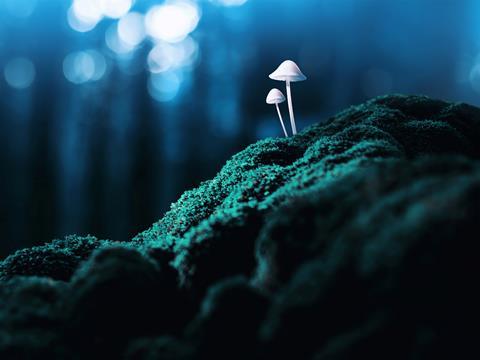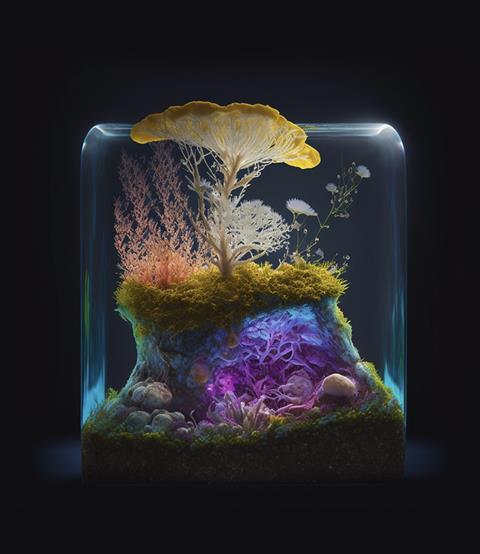The huge potential of fungi for solving some of the world’s most pressing environmental problems came under the spotlight at The Future Is Fungi Award.
The inaugural awards attracted huge interest from across the globe with more than 257 nominations from more than 70 countries.
The aim was not only to bring an overlooked natural kingdom into the spotlight, but to honour the scientists at the forefront of utilising fungi to solve environmental problems.

The winning researcher was Jens Laurids Sørensen of Aalborg University, for his pioneering work on fungal bio-batteries. His team’s biosynthesized battery marks a crucial step in sustainable energy storage, addressing the challenge of aligning renewable energy production and consumption.
Fascinating applications
The top three researchers also included William Newell of Imperial College London, whose work focuses on use of fungi for electromicrobial CO2 fixation, and Team Mycotextiles of University of California, Davis, for their work on recycling textiles into composite mycelium materials.
The shared winners of the start-up award were Novobiom, a biomimicry-inspired Belgian start-up, which has developed an innovative soil mycoremediation solution which provides an ecological solution for the remediation of contaminated industrial soils, and MycoMine, which remediates polluted water for hydrocarbons.
Visibuilt was the runner-up, with their novel innnovation replacing bitumen in asphalt production with fungi.
Colourful event
The colourful digital online award ceremony featured world-renowned Tarun Nayar who opened the ceremony with music from fungi.
Awards founder Susanne Gløersen described fungi as the last great frontier in biological discovery: “Fungi hold the potential to become our incredible ally to fight some of humanity’s largest environmental challenges, be it fighting climate change, addressing severe biodiversity loss, ensuring a more regenerative agriculture, a circular economy or replacing petroleum based or other harmful products with more sustainable and biobased ones.
“If we want to move the world in a more sustainable direction, fungi can really help us, and we haven’t really utilised it yet - there are so many discoveries that can bring new breakthroughs. The potential is immense- we’re just scratching the surface.
Cutting-edge science
“With The Future is Fungi Award, we wanted to honour and uncover the frontier and cutting-edge science that explores the utilisation of fungi for environmental solutions.
“Our goal is also to inspire further research and innovation in the bottomless fields of fungal research and applications.
“Real-world problems need real-world solutions. We therefore also want to nudge the commercialization of fungal research, to bring its solutions into the real world – and accelerate us onto a more sustainable, regenerative path.”
Tremendous response
The awards were held on November 23 and the team were blown away by the number of nominations they received.
“The awards received so much positive attention and support - we had mycology organisations all around the world, from across Latin America, China, Europe, the US, Africa, spreading the word about the award,” Susanne said.
“In the end we had 257 applications from 70 countries, from all the regions in the world which we were very happy with. We saw everything from self-healing materials to interconnecting fungi with computers and using fungi as a biobased sensor.
Real-world solutions
“There’s a lot of fantastic research out there, but to transition to a more sustainable society we need to ensure that this research gets out into the world as real world solutions. There’s a need for more connected networks globally and a need for something that connects the science community with corporates, with investors, with startups. If we want to accelerate the start-up revolution, these are the players that are needed to to accelerate that.”
To find out more about The Future is Fungi Award, visit the website. You can also follow the award on LinkedIn.








No comments yet